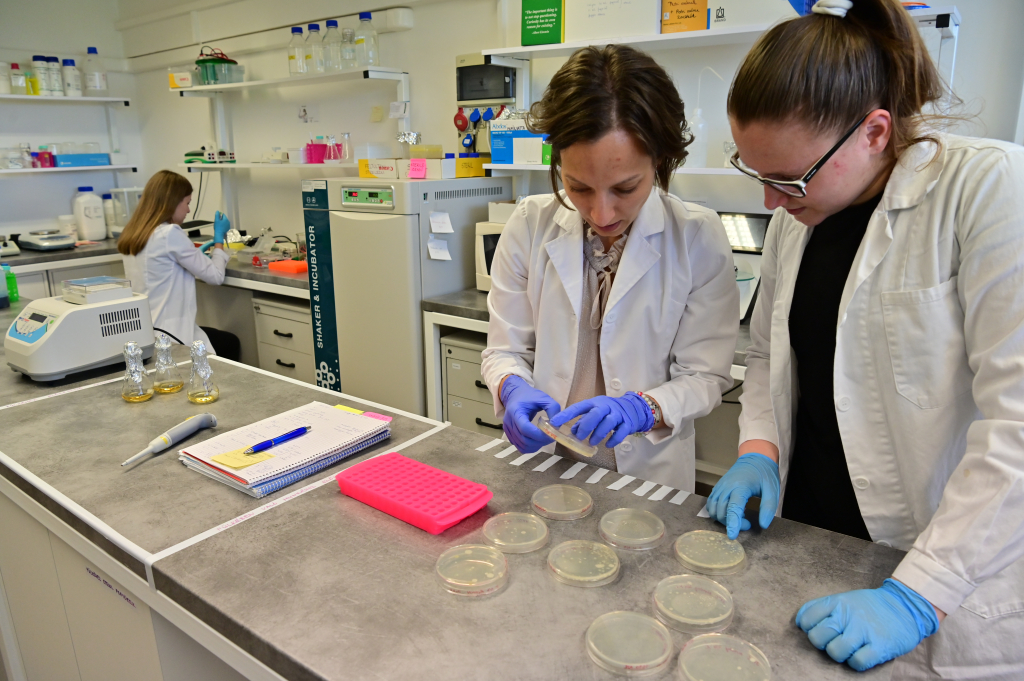Our research group focuses on the development of magnetic nanoparticles with various compositions applicable in molecular and cell biology techniques. We characterize tested magnetic nanoparticles based on their reversible surface binding efficiency to nucleic acids. Once we select the most efficient nanoparticles, we develop new nucleic acid isolation protocols and verify the quality of the extracted nucleic acids using various PCR (polymerase chain reaction) reactions. For nucleic acid isolation from different cell types, we create manual protocols serving as the basis for diagnostic, automated nucleic acid isolation procedures.
In addition to molecular biology tasks, we conduct various toxicity and microbiological studies related to the development of modern materials with new properties. Testing the toxicity of different materials often requires the development of new testing procedures or adapting existing tests to the materials being tested. Our group develops and validates new material-specific testing procedures. Materials we have examined include nanoparticles with various additives, composite polyurethane foams, and insulation materials containing plant extracts.
In many cases, the novelty of the developed materials lies in their antimicrobial properties, which our research group routinely investigates. This includes the examination of various membrane compositions developed for wastewater filtration, metal alloys intended for implant materials, and antimicrobial polyurethane foams.
Our microbiological activities also involve the microbiological parameterization of water from various sources (e.g., industrial/chemical graywater, natural water) and the determination of the efficiency of industrial water treatment equipment.
Furthermore, our group is actively researching the biodegradation processes of various polyurethane composites. We combine traditional microbiological methods with bioinformatics tools and the application of molecular cloning and PCR techniques. This enables us to identify the microorganisms involved in the biodegradation of organic waste, facilitating the identification of microorganisms participating in the biological breakdown of organic waste. With this knowledge, the conditions for degradation can be optimized more effectively. This part of our work contributes to addressing challenges in the fields of sustainable economy and waste management.
